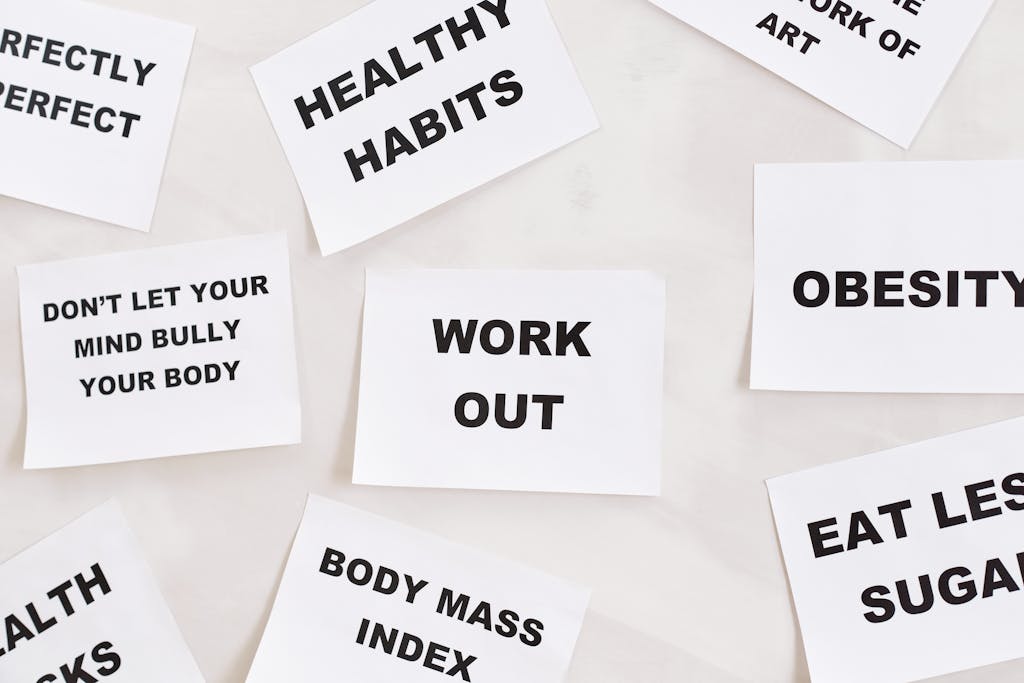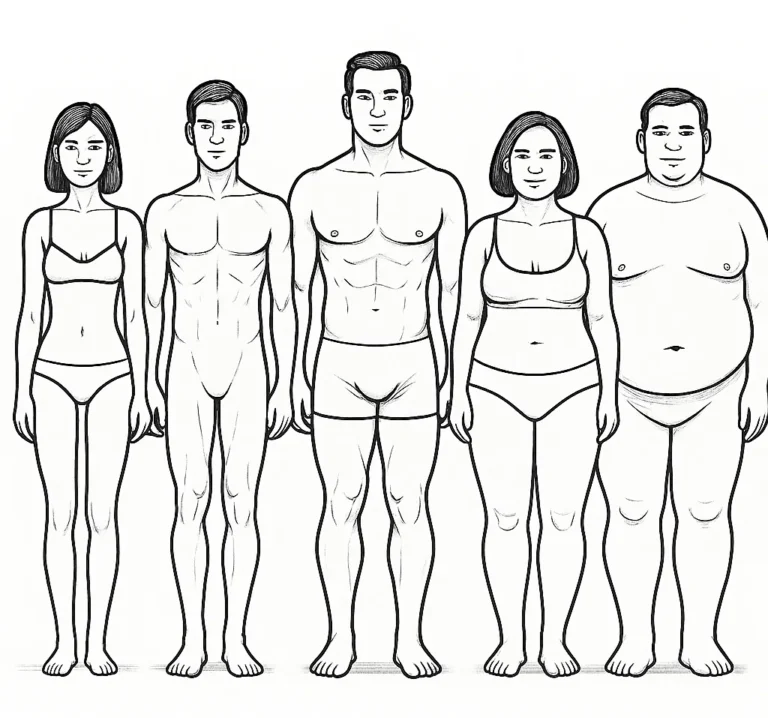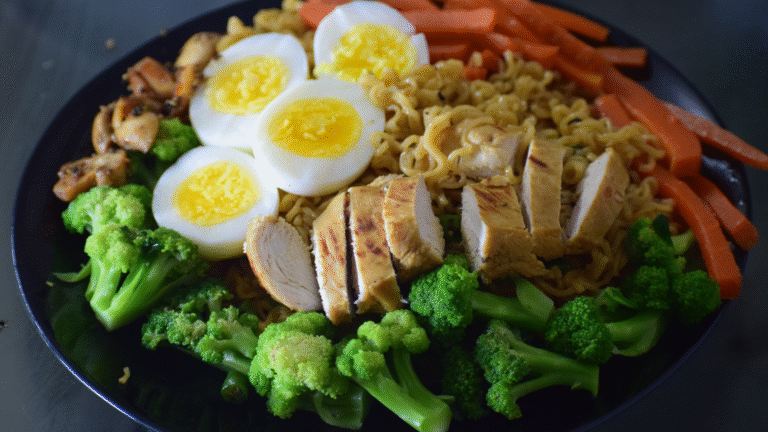About to hit the gym and want to set some fitness goals? Then you find yourself thinking, what should I focus on more: my diet or exercise for weight loss?’
Questions like this tend to arise more when you have tried various trends and followed several influencers for tips on healthy weight loss. The truth is, no matter what your goal is in the gym — nutrition is a major factor to acheiving that goal.
The Truth About Weight Loss
Both diet and exercise are crucial for weight loss, but it is sometimes better and easier to control your calorie intake through nutrition adjustment than it is to burn a considerable amount of calories through exercise.
Many people want to lose weight. It is a journey that a lot of people strive to achieve.
And for a long time, a lot of these people have been led to believe that exercise is the most important factor; however, over the course of this article, you can decide for yourself if this is true or not.
We’ve been convinced for far too long that exercise is the most important factor in shedding some weight. The “calories in and calories out” philosophy maintains that we must continue to burn what we eat and that the more we burn and sweat, the more weight we lose.
Myth:
“The more you sweat, the more calories you burn.”
Sweat is how your body cools itself down. It doesn’t equate to calories burnt.
This idea is shoved down by several apps, fitness experts, celebrities, and social media influencers who have popularised plenty of other training routines that have gained traction as a result of the pandemic-induced lockdown. However, the science is clearer than ever before, and we now know that we can’t keep indulging in food and expect to burn it off the next day on the treadmill. The truth is exercise by itself is nearly worthless for weight loss.
Diet should be the most important aspect of your weight loss plan!
Why Exercise Alone is Not Enough to Lose Weight?
According to research, we acquire 100% of our energy from food, but we can only burn 10 to 30% of it through physical activity.
Furthermore, research shows that exercise only accounts for a small fraction of daily calorie depletion. In truth, there are many more factors that contribute to our bodies’ energy consumption, and most people overlook the calories consumed through other daily activities. Even while we work, clean, or read, our bodies use calories; breathing, blood flow, body temperature regulation, and digestion – all of these processes require energy.
Therefore, we must realise that strenuous exercise accounts for only a small fraction of our total energy consumption. What exactly does this imply? This means that more workouts do not necessarily equal more weight reduction and that spending hours at the gym may not necessarily result in better outcomes.
Gaining some weight and also losing weight are complicated processes involving a variety of variables such as genetics (body type), lifestyle, environmental factors, diet components, and so on.
This is why there are so many forums on the internet where people discuss how their weight loss has stalled or even reversed after a few months of success. This is because the effects of weight loss programmes on different people are still uncertain.
Vigorous exercise can have a variety of impacts on various people; for example, some may engage in compensatory behaviours.
Compensatory behaviours occur when people who have exercised vigorously get hungrier and eat more to appease their appetite, resulting in an increase in calorie consumption that negates any workout benefits.
Some people overestimate the calorie intake they’ve exerted and use food as a reward. All of these are normal ways for our bodies to compensate for the calories they have burnt.
What you eat, as well as how much you consume, has a bigger impact on weight loss than you may think. Unfortunately, countries like the United States and even India, both of which are known for their carbohydrate-rich diets and where obesity rates are rising, are missing the plot when it comes to conveying the right idea.
Exercise apps, gym instructors, and fitness centres continue to flourish and spread the myth that you can exercise your way out of obesity when in reality, we’re consuming more than ever before, and unless we change our system, we’ll continue to fall subject to the cycle of eating more and exercising more, never quite getting where we want to be.
Should Exercise Then Be Completely Disregarded

No, I wouldn’t advise anyone to leave out exercising from their life; exercise is beneficial to both the mind and the body, and it aids in the maintenance of good heart health and a healthy weight.
But when it comes to weight loss, we must see it for what it is: a small portion of a bigger process in which nutritional adjustments play the most important role. A proper exercise routine and the right diet can still lead you to your goals.
Therefore, for those seeking to lose weight and establish that crucial low-calorie diet, smart dietary changes such as reducing refined carbs, lowering sugars, and boosting fruit and vegetable intake would be the way to go. Changing what you eat and how much you consume is the only way to lose those extra pounds and get on the road to better health.
Tips for Weight Loss Plan
It is reasonable to infer that weight loss is 75-80% dependent on diet or nutrition and 20-25% exercise. People who eat intelligently get the best short-term results, according to a review of more than 700 weight loss studies. Dieters who did not exercise for 15 weeks dropped 23 pounds on average; exercisers lost only six pounds over the same period. It’s far easier to lose weight by cutting calories than it is to burn them off.
For instance, if you consume a 500-calorie fast-food steak, you’ll need to run more than four miles to ‘undo’ it. Let that sink in for a minute.
How should I diet for weight loss??
Low-carb diets are the most popular because they produce the fastest results, but they are also the most difficult to maintain. It is suggested that you aim for a more balanced diet that includes fruits and vegetables, lean proteins, and whole-grain carbs. And never, ever, ever, ever, ever cut calories too low (this causes your metabolism to run slow, and you can start losing muscle mass). Consider 10 calories per pound of body weight for a balanced daily calorie count—a 150-pound woman should aim for 1,500 calories. That way, no matter how much you exercise, you should be able to lose weight.”
In Summary
The most important thing about losing weight is to make sure you don’t gain it back again. So, the most important thing you can do to lose weight is to change your diet, and the most effective diet plan is the one you follow consistently over a long time. This is because when you change your eating habits, you might gain some weight and lose some weight at different times.
For example, if you cut out sugar, you might lose weight immediately, but then you might gain it back later. So, you must maintain your new eating habit for a long time.
You should avoid foods that contain lots of calories. This includes sugar, salt, fat, alcohol, and caffeine. Try to avoid sugary drinks and snack foods.
Instead, drink water and eat fruits, vegetables, whole grains, lean meats, fish, beans, nuts, and seeds. This will help you feel full without adding extra calories.
Try to exercise at least three times per week. Walking is good for losing weight. You can also try jogging, swimming, cycling, dancing, or playing sports.

Bottom Line
Best results equal smart eating plus consistent exercise and physical activity. And keep in mind that you can’t out-exercise a bad diet; sustainable eating habits beat quick fixes.
So, even though losing weight is achievable mostly by a controlled diet, you can use a combination of diet and exercise to lose weight. But you must make sure that you do both correctly. Dieting without exercise is detrimental, and exercise without dieting is useless. Therefore, you still need to combine the two methods to achieve success.








